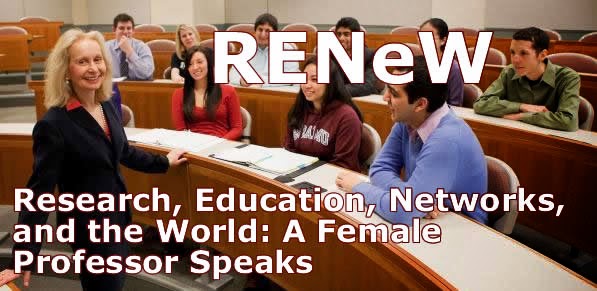The photos below were taken at the AAAS meeting with the majority at the symposium that I organized: Dynamics of Disasters: Harnessing the Science of Networks to Save Lives, which took place on Sunday, February 17.
All the panelists and discussants showed up -- as the organizer of this symposium, I breathed a sigh of relief, since the weather was unusually windy and cold and there was even some snow accumulation. Although we did have a technological disruption during Professor David McLaughlin's talk, once we located a technician, the issue was resolved.
The symposium consisted of 3 panelists and 2 discussants with the former delivering 20 minute presentations, and the latter 10 minute ones. The perspective was multidisciplinary with engineering, operations research and management science, computing, applied mathematics, and even economics represented by the panelists and discussants (sometimes under one hat). We heard about radar placement and tornadoes, emergencies and snowstorms, evacuation networks under disruptions, material convergence and congestion post disasters, and the location of disasters world-wide.
The panelists:
Assessing the Vulnerability of Evacuation Plans via Critical Element Detection
The discussants:
Jose Holguin-Veras, Rensselaer Polytechnic Institute, who focused on disasters that he had studied from the earthquake in Haiti to the triple disaster in Fukushina and Tina Wakolbinger, Vienna University of Economics and Business, who provided an excellent overview of the symposium with an emphasis on humanitarian logistics.
We had 1 or 2 questions after each presentation and then opened up the symposium to additional Q&A.
I would like to thank the outstanding panelists: Professor David McLaughlin, who is also the Director of CASA (Center for the Adaptive Sensing of the Atmosphere) at UMass Amherst, Professor Laura McLay of the Department of Statistical Sciences and Operations Research at Virginia Commonwealth University, who wrote a blogpost on our symposium, Distinguished University Professor Panos M. Pardalos, who is an AAAS Fellow and an INFORMS Fellow, Professor Jose Holquin-Veras, William H. Hart Professor at RPI, and the Director of the Center for Infrastructure, Transportation, and the Environment, and Professor Tina Wakolbinger, Head of the Research Institute for Supply Chain Management, who traveled from the Vienna University of Economics and Business in Austria, for their scientific leadership on problems of great societal importance. Thanks also to Professor Ed Aboufadel and AMS for supporting our symposium.



























